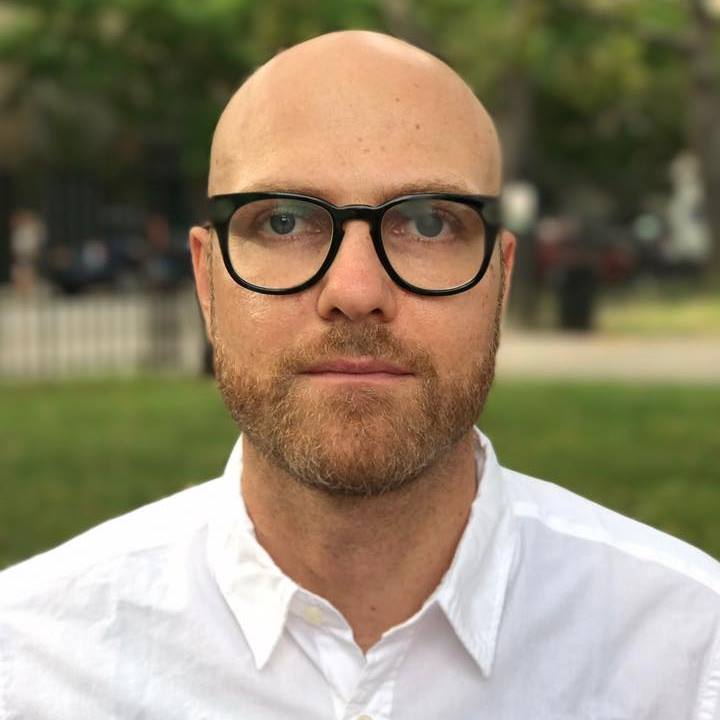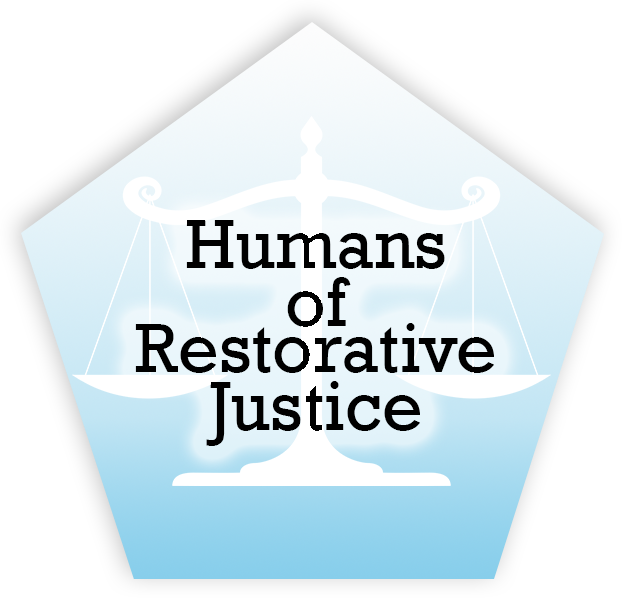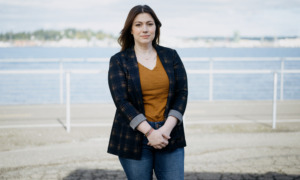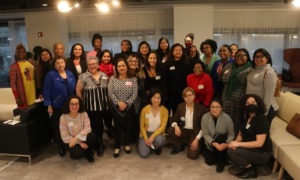Humans of Restorative Justice (HORJ) stories highlight the people working to build and restore strong relationships in their communities. They are written and edited by David Levine based on interviews with real-world practitioners. This one is from Edward of New York, New York.
 Several years ago I was running a reentry project in south Brooklyn supporting formerly incarcerated people returning to their communities. We were able to raise some funds to create a leadership development workshop. So I called a bunch of people I knew — formerly incarcerated people who were in positions of leadership in the nonprofit sector — to help create a curriculum.
Several years ago I was running a reentry project in south Brooklyn supporting formerly incarcerated people returning to their communities. We were able to raise some funds to create a leadership development workshop. So I called a bunch of people I knew — formerly incarcerated people who were in positions of leadership in the nonprofit sector — to help create a curriculum.
We decided that who best to help create these leadership workshops than those people who had been directly affected by the prison system themselves. Early on it was decided that a requirement for graduation was that participants would work on real-life projects that would help the community. Essentially, the goal of the project was to create a cadre of leaders, made up of people who had been directly or indirectly impacted by the criminal justice system.
 There is one story that always stands out for me. One day, a group of people who had graduated from the leadership workshop came to my office. They were complaining about the affordable housing units in which they were living. This housing was created to give affordable housing to people living in the quickly gentrifying neighborhood of lower Park Slope.
There is one story that always stands out for me. One day, a group of people who had graduated from the leadership workshop came to my office. They were complaining about the affordable housing units in which they were living. This housing was created to give affordable housing to people living in the quickly gentrifying neighborhood of lower Park Slope.
Across the street from the building were some housing projects with visible criminal activities occurring daily. On the other side of the building was a large avenue, with a steady presence of sex workers, which also brought in a lot of drugs and violence and so on. So, between the projects and the sex work, my people were somewhat fearful that they might get caught up in a police sweep or in a shooting. They came to my office wanting to do something about this.
But they were very clear that they didn’t want to call the cops and simply have them do a sweep and arrest everybody. A lot of my new leaders felt victimized by this type of prosecution in the past and they didn’t want to put others through the same injustice. They wanted to do something different.
Because these were graduates of the leadership workshops I was able to turn it back on them. I said, “What do you all want to do? You all went through the leadership development workshops, so what do we do?”
Trained in grassroots organizing techniques, we held several meetings, compiled a power analysis, identified our opponents and allies and went to work. First we contacted a state senator, an ally, who then contacted local police precinct captains. A big town hall meeting was held with almost 800 people in attendance. The state senator was able to bring three local politicians, not all of whom were allies.
The graduates of our workshops led almost the entire evening, facilitating important discussions between the people who lived in the community and precinct captains and local politicians. They had worked beforehand to come up with some creative solutions to the problems in their neighborhood.
At the town hall, they spoke directly to the police captains and said, “We don’t want you to come in and do a sweep of arrests. These are tactics that don’t work and often make matters worse.” They wanted something that would do more to assist the people involved. Something that would actually help the sex workers and mitigate the violence and drugs.
They presented some ideas that were more holistic than the usual way the police would handle things. There was a long and open discussion, involving a lot of voices and input from the community. One of the main ideas that emerged out of that town hall meeting was that instead of arresting the sex workers, the police would instead fine the “johns” — the solicitors. The johns would not be arrested but would be given a ticket they had to pay. This money could then be put in a pot, a fund, and that money would be used to help local women get support such as drug rehab or counseling for domestic violence and trauma.
This became a pilot program that the police began to use based on my group’s proposal. When I look back at my work over the past 25 years, I see this as one of the great things I’ve ever seen happen. And I think this emerged because the leaders from my group, people who had been incarcerated, had a more nuanced view of what works to address the root causes of the dysfunctions occurring in a neighborhood.
I’m not sure if you would call that “restorative justice” in a strict definition, but I do feel that it was restorative in the fact that it got the community engaged in healing itself, and being agents of positive change. It was a very powerful point in my career for sure. It changed me and had a transformative effect on my life as well as the others involved.
Now, I’m not entirely sure what the exact outcomes or long-lasting effects of the solutions offered that day were, but in a sense, that is not the point of the story. We had gathered a state senator and one or two council members who got on board with this idea. Regardless of the outcomes of our proposal, more importantly, we had shared a communal experience, where everyone in the community suddenly felt more empowered to think about solving their own problems and about how we define what justice is.
Every one of the individuals who were a part of this project, none of them ever went back to prison. It had a huge impact on their lives, just being part of this process. Many of them stayed engaged in community activism, even travelling to Albany, New York to speak out for change. And some have started their own programs and are now teaching others.
In fact, it is not uncommon for me to run into some of these leaders at protests, or lobbying days, or as speakers at panels and conferences. The day after that town hall meeting they came running back to my office saying things like, “Oh man, we really did this!” and, “You actually can do this, this can happen!” I could see what I call the fever of activism, taking them over and lighting them up.
You know, sometimes I think what keeps people from not going back to prison is not necessarily landing a job or getting more education, but it’s often about having a transformative personal experience like we had at that town hall meeting.
When a person evolves, when they reach a new level of moral reasoning, that is often what is needed to keep them from going back. Once you reach a level where you are thinking not just about yourself, or your family, or your ethnicity, but when you start to think with a more global perspective, it’s that mentality that keeps you from going back to choosing actions that harm your community or harms yourself and sends you back to prison.
If you or someone you know would like to be interviewed, please contact d.levine@nationalcenterforrestorativejustice.com.
David Levine has worked as an educator at public high schools in Brooklyn and Seattle, and as a restorative justice dean in the Bronx. He is currently a course facilitator at the National Center for Restorative Justice, an organization that provides training for those looking to change their relationship to conflict.






























